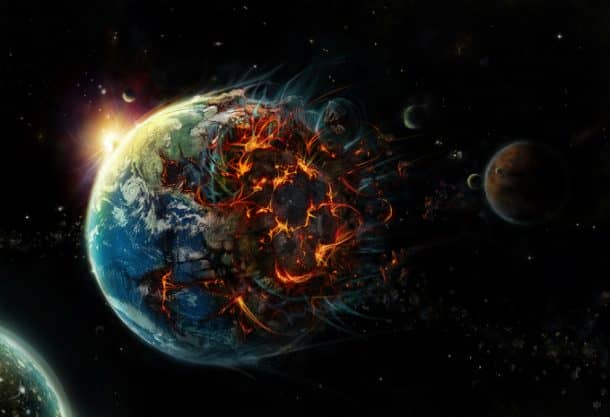This is quite an intriguing question, with several scenarios and variables being taken into account before giving any satisfactory answer. After all, earth and all its habitable conditions and living matter depends on oxygen, literally every nano second. So, what would really happen if oxygen was to be removed from the environment? D.J. Brenner, who has worked with strong oxidizers including pure oxygen and fluorine had a great answer to this question on Quora:
The most likely answer in his opinion was that the Earth would be a lot closer to Venus. Oxygen is in great supplies in our neighborhood of the solar system, and is found to make up majority (by mass) of the CO2 in Venus’s atmosphere. It also causes the rusting effect on the Mars, when it combines with the iron, thus giving the planet a red color. Earth has plenty of carbon to combine with, so in case there is no oxygen on earth, you can expect elevated CO2 levels in our atmosphere and oceans. The oceans though will be able to absorb a lot of the excess CO2, so we would not end up with the extreme greenhouse effect that exists in Venus. As for the lifeforms, as most of them run their metabolic processes on oxygen as a fuel, this would cause them to stop and thus, most of the lifeforms would be instantly killed.
In fact, the only reason Earth has such abundant free oxygen in its atmosphere is because of life. Early in the Earth’s history, the atmosphere would have been exactly like we described above. Ancient microbes such as algae-like and bacteria-like most probably lived on this world without oxygen. Then they eventually evolved and found the process of photosynthesis as a way to create and store energy. They must have needed a lot of carbon for this to work, which they got from the C in CO2. For the microbes, the free oxygen was just a byproduct, eventually building up to the point where the majority of the planet went from an anaerobic, i.e. without oxygen to an aerobic environment (with oxygen).

The next question beckons; could life have evolved like it has today without oxygen? Maybe, but it would certainly have been much more difficult. Because for this to happen, you would need an alternate energy source which is as abundant as the sun. We know our ecosystems lies near hydrothermal vents, and these processes use disulphide bonds as their primary energy source. The distance between the hydrothermal vents can be very large, so we would not have gotten the migrations and adaptations that we see in our earth’s history today involving animals that rely on light and the carbon cycle to exist. Thus, it would have taken a lot longer for these ecosystems to develop into complex life, if they ever could.
Do you have a theory as an answer to this question? Let us know in the comments below!


